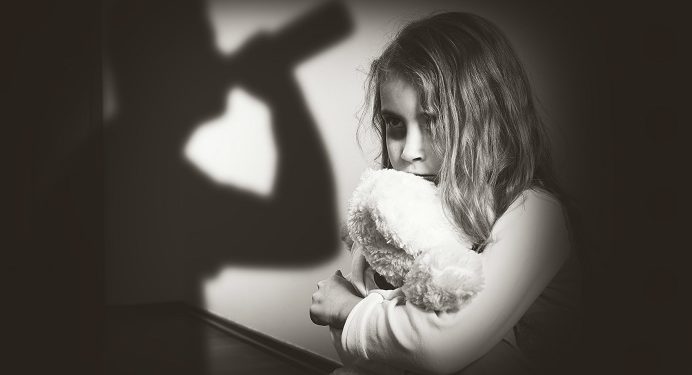What forms of violence do children experience?
In a 2011 study, around 13% of the adolescents and adults surveyed stated that they had been victims of sexual abuse in childhood. In addition to physical sexual abuse, children can also be victims of sexual assault on the Internet or exhibitionism.
Not only sexual abuse, but also other forms of violence can leave lasting damage to the psyche of children. According to the survey, around 22% of children worldwide are exposed to physical violence. But neglect can also be perceived as traumatic in children.
In fact, neglect is one of the most common forms of childhood abuse and has similar mental health consequences as physical and sexual violence. In a study, 16% of those questioned stated that they had been physically neglected in their childhood, 18% suffered emotional neglect.
Emotional violence, which includes, for example, bullying by peers, but also humiliation, racist or misogynistic comments by parents, family members, teachers, trainers or strangers, is unfortunately common. It has so far been difficult to quantify and the consequences for the mental health of children have not yet been adequately researched.
In many cases, children are not directly exposed to violence, but experience it as witnesses, for example in the family circle. They hear or see violent confrontations between their parents or get involved in trying to protectively intervene. This form of child violence can also have serious consequences.
Consequences of Experiencing Sexual Violence in Childhood
Every person and every child deals differently with extreme experiences such as experiencing sexualised violence, but also experiencing other forms of violence or neglect. The consequences also differ depending on the duration of the experience. If an experience takes place repeatedly or over a long period of time, this can lead to different consequences for the child concerned. The effects are also different depending on the gender.
In general, however, people have a high risk of secondary trauma disorders due to experiences of violence, especially in childhood. In the context of childhood violence, post-traumatic stress disorder and complex trauma have not yet achieved sufficient awareness as a diagnosis. Nevertheless, these long-term effects often occur in those affected. Often they then get a number of different diagnoses such as depressive, anxiety or panic disorders.
Alert signals for childhood trauma
- Avoidance behavior: those affected try to avoid situations that are reminiscent of what they have experienced
- social withdrawal
- in some cases reluctance to and avoidance of sport and physical exertion (fast breathing and accelerated heartbeat also occur during trauma)
- Reverberation memories during the day, but also in dreams, resulting in insomnia
- increased arousal and excessive vigilance
- Irritability and frightfulness
- emotional numbness and mental absence
What can I do?
Anyone who knows several of these symptoms, which usually appear weeks or months after the actual experience, from themselves or from people in their own vicinity, can get help. For professional support in dealing with trauma, one should turn to a psychologist. There are different contact persons depending on the age of the person concerned. Specially trained child and adolescent psychologists with knowledge of trauma therapy can help with minors.
sources
Haan, Deegner & Landolt. Childhood Violence and Its Consequences. (2019).
Vasic et al. Persistent childhood sexual abuse and long-term developmental consequences. (2015).

